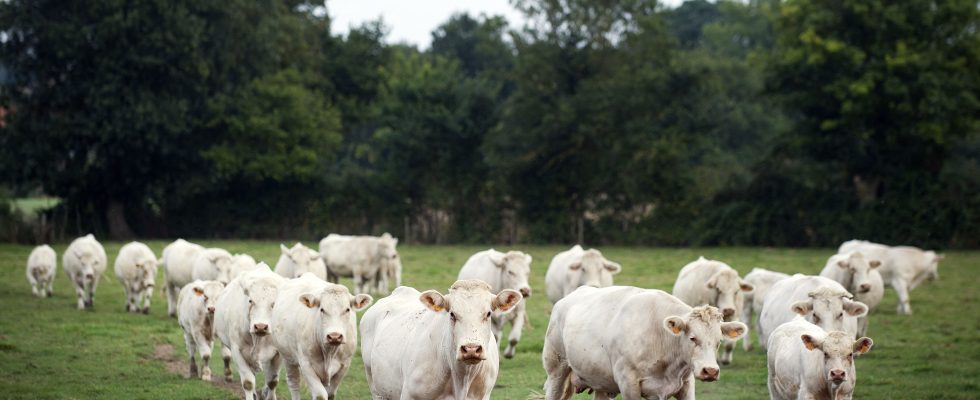Here is news that breeders could have done without. Epizootic haemorrhagic disease (EHD) was detected in three cattle farms, located in the Hautes-Pyrénées and the Pyrénées-Atlantiques, in the south-west of France. The Ministry of Agriculture announced, Thursday September 21, that he was putting in place “measures to manage this disease in conjunction with professional organizations”. Thus, it is now prohibited to export cattle within a radius of 150 kilometers around the affected farms, as well as in Spain and Italy, except for slaughter.
Discovered in the United States in 1995, MHE is transmitted by a biting midge, which attacks ruminants, particularly cattle, and deer. Once entered, the virus circulates through the bloodstream, and after a few days the animal develops symptoms: fever, mouth lesions, breathing difficulties, weight loss… “The symptoms vary depending on the immunity of the ruminants”, explains to L ‘Express Christophe Brard, veterinary doctor and president of the National Society of Veterinary Technical Groups (SNGTV), which provides continuing training for veterinarians for livestock. “Some do not react or have mild forms, like sheep, others have more serious forms which can lead to death. This is the case of the first animal diagnosed in the Pyrénées-Atlantiques.” In the United States, the disease mainly kills deer, with a mortality rate of more than 90%.
Once the virus is detected through a blood test, the animal is kept away from the farm and treated with medications that respond to the symptoms, such as painkillers, anti-inflammatories or antibiotics. There is currently no vaccine against MHE and contamination is very random. “The great difficulty with this disease is that the midge can bite animals on a farm, then be pushed by the wind and bite others elsewhere,” adds Christophe Brard.
Result of climate change
Very present in Africa, MHE is spreading more and more northwards because of global warming, which is raising temperatures and making conditions more favorable for the development of these midges. Last year, the virus spread to Spain and Italy (Sardinia and Sicily). “We hope that with winter, the weather will be cooler and will slow down the activity of midges, but MHE can certainly rise again across France,” warns Christophe Brard.
In addition to the health problem that the disease poses for the animals, it is also an economic problem for breeders, who can no longer export, that is to say sell or exchange, their live animals and therefore see their trade temporarily paralyzed. The Ministry of Agriculture has not yet defined under what conditions the ban will be lifted, but bilateral agreements could be developed to authorize export. If, for example, the animals come from a breeding without cases, they are disinsected and a blood test shows that they are not positive. But if the disease develops and returns next year, thanks to ever-warmer temperatures, we will then have to live with it, according to Christophe Brard, as with Covid-19. “We will then have to regulate the exchanges and develop a vaccine to compensate the animals.” Until the appearance of a new virus from the south…
